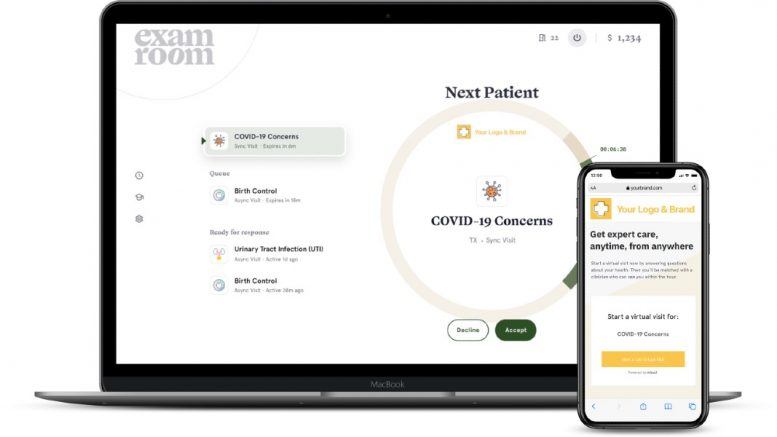Health tech company will use funding to accelerate 300% year-over-year growth, expand clinician networks, and continue building technology to reach millions of patients in seconds

Wheel announced a $50 million Series B investment led by Lightspeed Ventures with participation from existing investors CRV, Silverton Partners, Tusk Venture Partners, and J.P. Morgan. Slow Ventures also participated in the round. As lead investor, Lightspeed Senior Advisor Dr. Ling Wong will join Wheel’s board of directors. The company has raised $66 million in total and will use the funding to further invest in its technology and clinician networks, soon delivering care to millions of patients in seconds.
“Imagine being able to pull out your phone and instantly get connected with the best doctor for your care needs,” said Wheel CEO and cofounder Michelle Davey. “We’re building the technology to make this complex and expensive feat a reality for millions of patients. If we actually want to expand access to healthcare, we need the industry to recognize there’s a better way to reach patients than simply bringing the broken system online. That’s why we’re powering the next generation of healthcare companies and clinicians to make virtual care work for everyone.”
Today Wheel provides its white-labeled service to companies across a wide variety of industries, including publicly-traded digital health companies, tech companies, retailers, labs, and medical device companies. Wheel has introduced a novel way of bringing high-quality virtual care to more people by:
- Making it simple for any company to launch a virtual care service under their own brand. Wheel’s technology addresses the operational and regulatory barriers that often make it challenging to provide care to patients across all 50 states in real-time.
- Offering clinicians the best place to work in virtual care. With a 90 percent retention rate, Wheel provides clinicians with one place to manage their virtual care practice, including training, support, and the ability to work across several highly-vetted opportunities.
Wheel’s technology connects patients with clinicians across more than a dozen attributes, ensuring patients are matched with the best clinician for their care needs. For example, connecting LGBTQIA+ patients with primary care clinicians that have been trained to provide affirming care. This personalized approach also allows companies to leverage clinicians only when they’re needed, significantly driving down costs, meeting patient demand in real-time, and addressing industry-wide clinician shortages.
“We have seen an explosion in demand for telemedicine across our daily lives from sessions with a physical therapist to advice from a specialist,” said Dr. Ling Wong of Lightspeed. “Michelle and team are fundamentally building new healthcare infrastructure that will define and enable successful virtual care. Wheel has built its business to be symbiotic with their customers, so they’re able to scale and grow in lockstep with their customers, a powerful model. I’m honored to join the board and lead the company’s Series B financing.”
The pandemic confirmed the healthcare industry needs a better way to reach patients virtually, and Wheel has stepped up to meet the demand. The company grew 300 percent year-over-year and expanded its clinician network by 450 percent. In addition to delivering nearly half a million patient visits in the last year, Wheel launched a white-labeled virtual care platform and expanded into behavioral health. This Series B investment allows Wheel to grow its team, work with more companies expanding into virtual care, and continue building the future of consumer-driven healthcare experiences.
With clinicians now seeing 50 to 175 times the number of patients virtually than they did before the pandemic, many are looking for guidance on how to best treat patients virtually. Wheel will expand its current training resources to support all clinicians in the transition towards virtual-first and hybrid care models. The company will also continue investing in its clinician networks, expanding into new specialties as well as triage and front-line care navigation.
For companies interested in partnering with Wheel please visit wheel.com/companies and for clinicians interested in virtual care opportunities, please visit wheel.com/clinicians.

